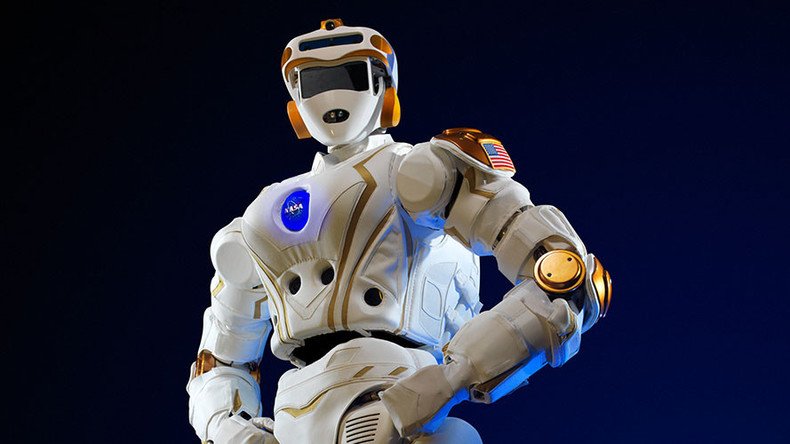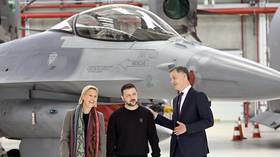NASA’s humanoid robot put to the test for ultimate Mars challenge

NASA’s Robonauts are being put to the test in Mars-like obstacle courses in order to pave the way for future humanoid space exploration and help bridge the expansive gap between Earth and human colonization of the red planet.
NASA built four six-foot, 290-pound, Iron man-like pieces of machinery named Valkyrie, at the cost of about $2 million each, and then outsourced three of them to universities to test the robot’s capabilities in various hostile environments.
In 2015 Northeastern University, Massachusetts Institute of Technology and Scotland’s University of Edinburgh were all chosen in open competition and assigned the task of challenging and refining the robotic technology in the hope of creating a future robot capable of withstanding the Martian planet.
READ MORE: R&D boot camp: NASA’s humanoid robots go to universities for special space training
Northeastern tested their model at the New England Robotics Validation and Experimentation (NERVE) Center — a warehouse filled with large and challenging obstacle courses designed to test robots and drones alike.
It’s in this kind of environment that robotics and engineering students put Valkyrie’s skills to the test and have further developed its “high-level capabilities”.
“She can autonomously make decisions, move around and accomplish tasks,” said Northeastern PhD student, Murphy Wonsick to TechCrunch.
In theory, the successors to these Robonauts would help facilitate the colonization of Mars by building the necessities humans need before their arrival and further assisting the astronauts with tasks while on the red planet.
READ MORE: The power of glove: GM & NASA create robotic helping hand to fight fatigue (VIDEO)
The robot’s ultimate Mars test will take place this summer when 20 teams will compete for a $1 million prize in NASA’s Space Robotics Challenge, designed to place Valkyrie in a Martian-like scenario.
“In the not too distant future, R5 has arrived on Mars along with supplies ahead of a human mission. Overnight a dust storm damaged the habitat and solar array, and caused the primary communication antenna to become misaligned,” the agency’s simulated event suggests.
The robot must repair the damage, deploy a new solar panel and align the communication antenna to complete the challenge.













